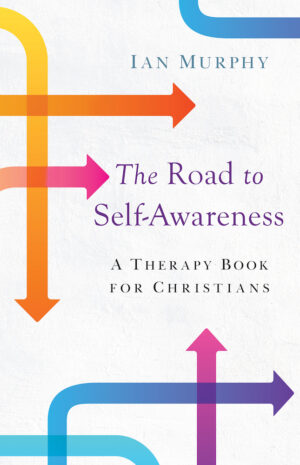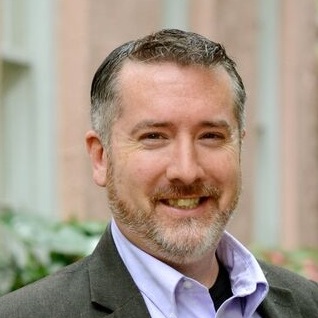|
Getting your Trinity Audio player ready...
|
A struggling married couple, seeking desperately to heal their relationship, meets with a professional marriage counselor. Sitting across from their therapist, the husband and wife are on the edge of their seats as they eagerly await some word that might bring healing to their home. The well-meaning but dangerously misguided therapist then offers his advice: the couple should begin watching pornographic movies together.
Christianity knows well the Lord’s teaching about the willful engagement of lust—that the choice constitutes adultery (Matthew 5:28). Those who do not accept the Christian revelation may still see echoes of its truth in clinical studies that indicate pornography’s harmful effect on the brain; namely, it functions like an addictive opioid.
Yet, despite such clear evidence of its destructive impact, from both Theology and Psychology alike, this “therapist” has attempted to offer “healing” to a struggling marriage by suggesting porn. Effectively, the so-called caregiver just prescribed adultery and narcotics.
Orthodox. Faithful. Free.
Sign up to get Crisis articles delivered to your inbox daily
Likewise, consider the university that responded to the therapeutic needs of its students by handing out free condoms. This approach ignored wholesale both spiritual ramifications as well as biological realities, such as the depression and even suicidal inclinations that can occur from a break-up after bonding hormones have been released through intercourse. Not surprisingly, lifelong wounds and trauma resulted from the heartache of the hook-up culture.
How, then, did this university respond to the damaging outcomes of having supplied free contraceptives? By handing out antidepressants. Throwing a pill at the situation may claim to alleviate pain, treat symptoms, or reduce suffering. But, of course, such a course of action could never actually heal the wounded students.
Unfortunately, this pandemic of misguided care isn’t limited to secular counseling offices. After briefly mentioning the problem of obesity, one recent church sermon added that the matter has nothing to do with a person’s spiritual life. The body has nothing to do with the spirit? I beg to differ. However, if this is a message that believers are hearing, it’s no surprise why some turn to Christ for a “ticket into heaven” but seek their healing from Dr. Phil. Sometimes we lose sight of the fullness of what it means that Jesus is the Great Physician.
If in hearing these tragic examples you find yourself saying, “That’s crazy,” then your instinct is a good one. To the point, the term “neurosis” regards some partial break with reality, and “psychosis” regards a total break. In each of the cases above, caregivers lost touch with reality. Some of the therapeutic advisement out there in the world today is, quite literally, insane.
How did the wide world of caregiving derail this far off track? The short answer (but no less an accurate one) is that it left God out of the picture. As soon as God was left out, a host of harmful consequences resulted like falling dominoes. Theology, philosophy, psychology, and anthropology split apart from one another, losing sight of the inherent connections between them. In the Babel-like confusion, the psychotherapeutic world developed piecemeal approaches to caregiving—methods that failed to incorporate the big picture.
This overall disintegration also trickled down into the daily lives of individuals. We’ve become increasingly disjointed. We tend to treat body and soul as separate. We might even behave as though we’re different people depending upon whether we’re at work, with friends, at church, or online. In all the chaos, modern culture preaches “be true to yourself,” but it fails to recognize the stark difference between a well-ordered self versus a disordered self.
Certainly, the popularity of the whole self-help industry bears witness to a deep, widespread spiritual hunger for true healing in our fractured and disordered lives. At the same time, the sheer abundance of therapeutic methods also bears witness to another fact: the self-help books aren’t working. Modern therapy seeks to heal the human person; yet, under an incomplete anthropology, numerous therapists don’t understand what a human person is.
By this author:
-
The Road to Self-Awareness$18.95
Lost in the sound bites and quick fixes of today’s secular self-help market, approaches to caregiving gravitate toward “pain-alleviation,” “symptom-treatment,” and “problem-solving,” as though people are fundamentally problems to be solved. Many have forgotten that, essentially, we are God’s beloved who reflect His image. We’ve also forgotten that beyond any problem we’re saved from is the joy we’re saved for. Lost in the sound bites and quick fixes of today’s secular self-help market, approaches to caregiving gravitate toward “pain-alleviation,” “symptom-treatment,” and “problem-solving,” as though people are fundamentally problems to be solved.Tweet This
Casting revealing light on the modern crisis of misguided therapy is vital. Even more important is the Good News that real and lasting healing is available. The Lord is our Great Physician, and He wants to heal us. The Holy Spirit—the Lord residing within us—is called our Counselor (John 14:26). When we invite the Counselor back into counseling, a whole new world opens up to us.
With God back in the picture, our wounded image of the Heavenly Father—and our correspondingly wounded self-image—can finally begin to heal. Instead of reducing the healing process to the mere avoidance of suffering, we come to comprehend it more thoroughly: as God’s repairing of the loving image that truly defines us. Virtues, which are none other than the specific qualities of love, thus become central.
By God’s grace, the baby steps we take in virtue, through repetition, are proven to rewire the brain with new synaptic pathways—healed neuro-channels that we experience as new dispositions, tendencies, or second-nature routines…known more commonly as “habits.” Excitingly, as charitable habits internalize, they come to shape our character beyond the vices we’re healed from —propelling us with sustainable momentum into the flourishing happiness we’re healed for.
To the extent that the Lord is left out of the picture, therapeutic tools will remain incomplete at best and deadly at worst—ironically keeping people trapped in the very dysfunction that needs to be cured. Only when God is at the center will we find the healing we long for.

